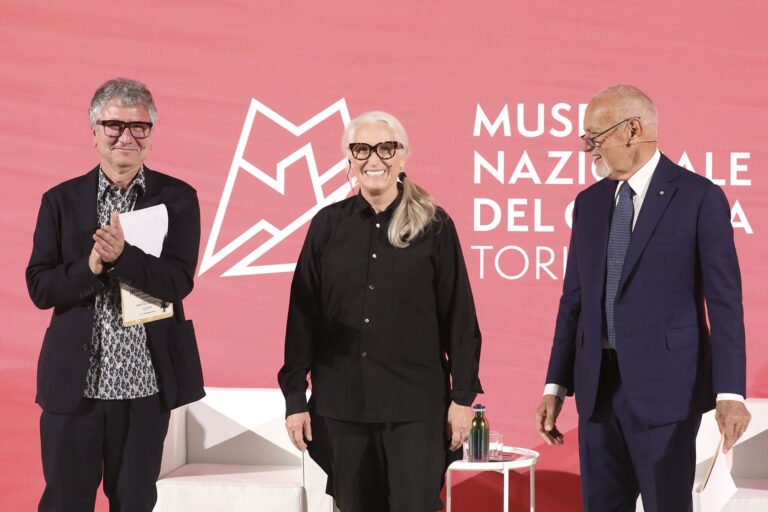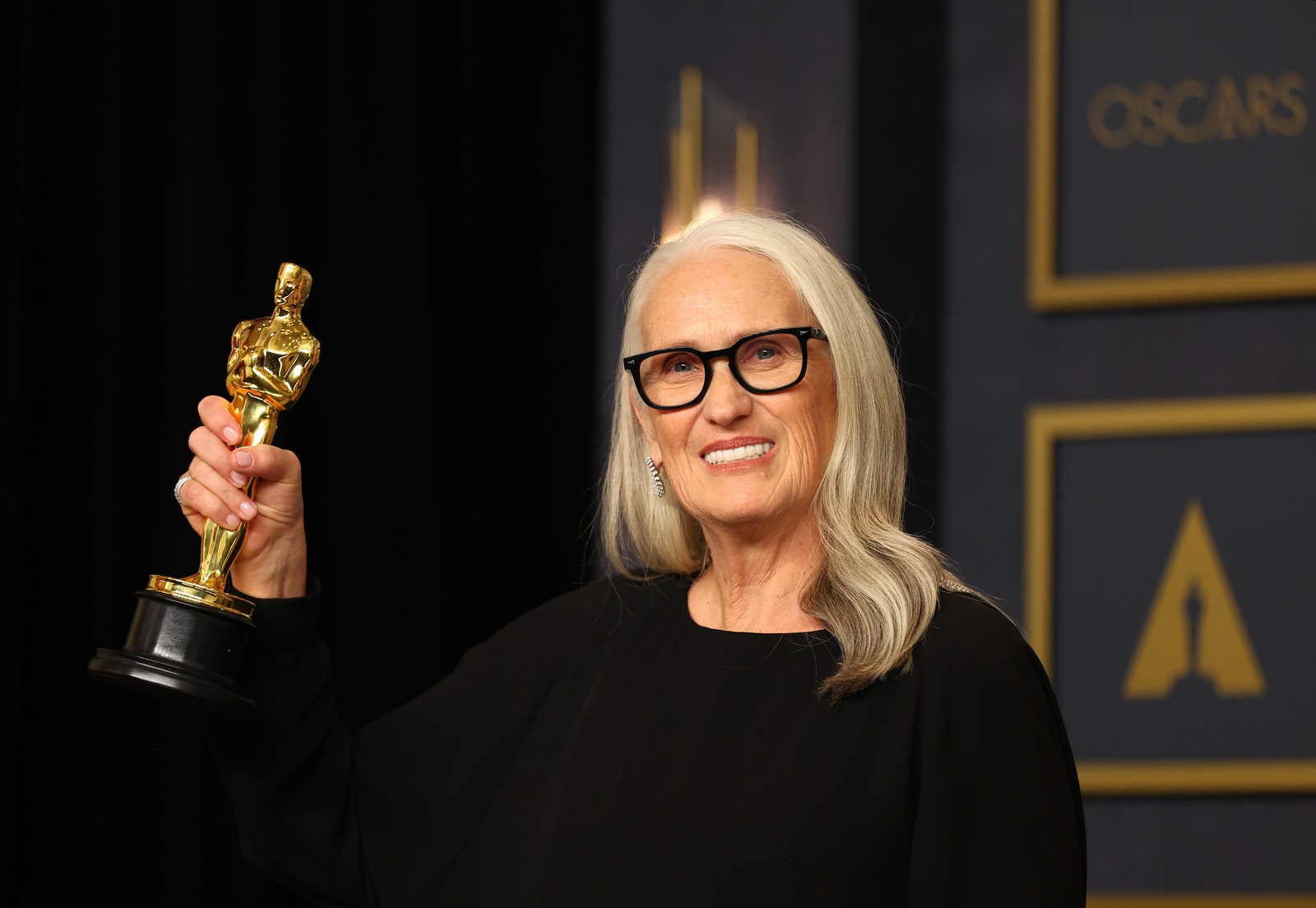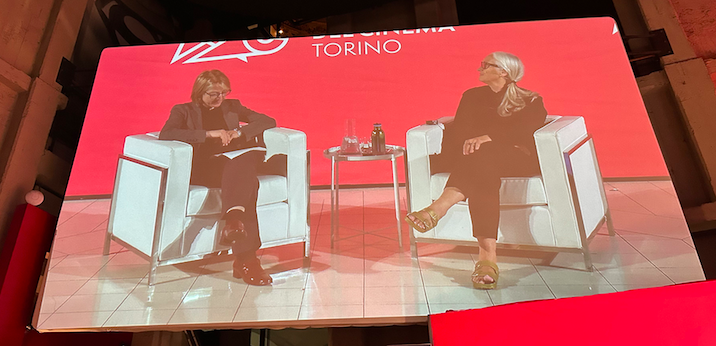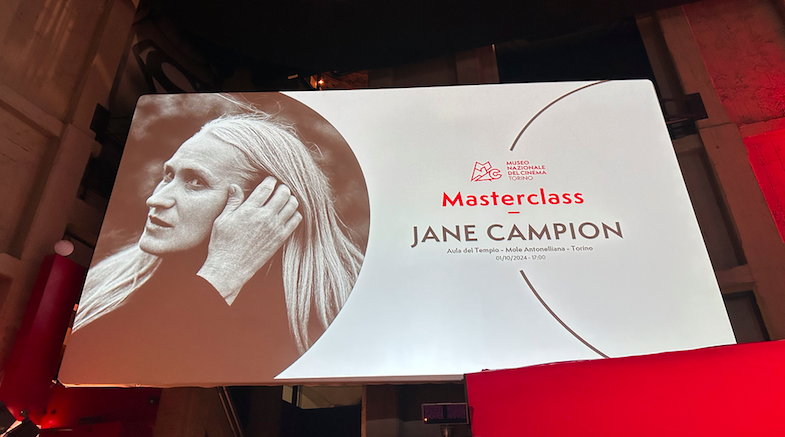
The two-time Oscar winner for The Piano and The Power of the Dog received the Stella della Mole Award during a Masterclass held on October 1st, where she shared her thoughts on cinema and the way she nurtures her craft. The session was followed by a screening of The Portrait of a Lady, whereas the previous day was characterised by a retrospective of Campion’s shorts — an initiative created in collaboration with RAI’s Prix Italia international festival.
Thus, the Museum of Cinema in Turin paid tribute to the New Zealand director, producer and screenwriter, who was the first woman to receive the coveted Palme d’Or at the Cannes Film Festival. Furthermore, she was the second of nine women to be nominated as Best Director at the Academy Awards Awards, establishing herself as the only female director with multiple nominations in this category, winning on her second nomination.

Jane Campion expressed — also in Italian — her gratitude to the Museum that celebrated her body of work, as she was warmly welcomed by President Enzo Ghigo and Director Domenico De Gaetano. The event was curated by Marco Fallanca, who through the years has brought to the institution the cinematic cream of the crop, with the likes of Damien Chazelle, Tim Burton, Paul Schrader, Jane Campion, the upcoming Martin Scorsese and many others.
The conversation — moderated by Graziella Paganelli — allowed the filmmaker from New Zealand to retrace her works, from her early days until the present, through her various heroines who fought to be heard, recognised and understood. Clips from Campion’s films preceded the questions that sparked a fascinating journey through her filmography.

Female rebellion seems to be one of the themes that traverse Jane Campion’s pictures, and is accompanied by aesthetic choices, where a chaotic environment yearns for peace. This observation, made by Paganelli, triggered in the filmmaker the memory of how she used to be a rebellious child, something that followed her during her adulthood. “Instinct to rebel is the reason I’m a filmmaker,” said Campion and added, “for a young woman lots of rebellion is needed, freedom is very important.” Her feature film Sweetie, embodies this spirit, as we observe how sisters Dawn and Kay confront their dysfunctional family. Campion explained how she does enjoy some traits of chaos, but is also a very pragmatic person, equipped with common sense which is necessary to make a film work. What the filmmaker treasures above all is delicacy of feeling, as she underlined: “I feel tender towards people with this quality.”
An Angel at My Table represent’s Campion’s love letter to Janet Frame, since the film is based on the adaptation of her three autobiographies. This marks the filmmaker’s dedication to transferring literature to the silver screen. In this film Campion also channelled her university studies — in visual arts — in the look of the picture, where colour choice and composition are carefully designed to play with light and shadows, to bestow a vertigo effect.

The Piano is the motion picture that was pivotal in Jane Campion’s path, as it established her popularity with mainstream audiences. Here we experience her investigation into female characters living in male-dominated societies, with heroines struggling to express their individuality that places them at odds with the world around them. The story about salvation, eroticism, obsession and love, depicts a woman afflicted by mutism confronting a patriarchal society. The movie has set the grounds for female filmmakers who, inspired by Campion, chose to tell stories about what it means to be a woman. In the past the film has been connected to novels like The Story of a New Zealand River by Jane Mander and The African Queen by C. S. Forester. During the Masterclass, Jane Campion claimed her strong appreciation for two literary Emilys that influenced her writing: the author of Wuthering Heights, Emily Brontë, and Emily Dickinson who penned the poem The Heart asks Pleasure first, which gave the name to the song composed by Michael Nyman for the film.
Campion cherishes the female authors of the 19th century, as Jane Austen and George Aliot, but also novels written by men of that era who had the proper sensitivity in grasping the female condition — as did Henry James with his The Portrait of a Lady, that Campion adapted for the screen. Even 20th century female authors have been a source of inspiration for the filmmaker, such as Flannery O’Connor and Susanna Moore, author of the novel of Campion’s eponymous film In The Cut.
“I’m a nerdy girl,” Jane Campion exclaimed: “I like poetry, literature, real humans.” Her passion for verse is fully channelled in the film Bright Star, that focuses on the romance between the opinionated Fanny Brawne and poet John Keats. The mightiness of words is fully unleashed in The Power of The Dog, especially how they are used in every day life as facades to a world of subtext. Dialogues never correspond to the thoughts and feelings running through people’s heads, they hide or deflect true intentions and sensations. Jane Campion’s relationship with language is her tool to philosophise on what it means to be human.
She is currently sharing her filmic experience with her Cinema School, to honour how the government allowed her to forge her craft and ultimately represents her gift to the next generation of filmmakers. Jane Campion’s emotional universe, her sensitive and imaginative approach to literature, intertwined with an innovative style of filmmaking, has truly allowed audiences to ponder upon the ambiguity of the human psyche.


